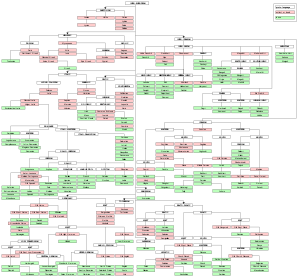Àwọn èdè Índíà-Europe
Ìrísí
| èdè ará Ìndíà-Europe | |
|---|---|
| Ìpínká ìyaoríilẹ̀: | Before the 15th century, Europe, and South, Central and Southwest Asia; today worldwide. |
| Ìyàsọ́tọ̀: | One of the world's major language families |
| Àwọn ìpín-abẹ́: |
Anatolian (e.g., ''Hittite'')
Àwọn èdè Balto-Sílàfù (e.g., Russian, Lithuanian)
Celtic (e.g., Irish, Welsh)
Germanic (e.g., English, German, Swedish)
Hellenic (e.g., Greek)
Indo-Iranian (e.g., Bengali, Hindi, Persian, Kurdish)
Italic (e.g., French, Italian, Portuguese, Spanish)
|
| ISO 639-2 and 639-5: | ine |
[[File: | |

Awon ede ara India ati Europe je ebi (tabi phylum) awon of ede bi ogorun to baramu,[1] to kopo awon ede Europe, ti Iranian plateau, ati awon ede Apaguusu Asia, ati bakanna ni Anatolia ati Aarin Asia.

|
Àyọkà yìí tàbí apá rẹ̀ únfẹ́ àtúnṣe sí. Ẹ le fẹ̀ jù báyìí lọ tàbí kí ẹ ṣàtúnṣe rẹ̀ lọ́nà tí yíò mu kúnrẹ́rẹ́. Ẹ ran Wikipedia lọ́wọ́ láti fẹ̀ẹ́ jù báyìí lọ. |
Itokasi
[àtúnṣe | àtúnṣe àmìọ̀rọ̀]- ↑ It is composed of 449 languages and dialects, according to the 2005 Ethnologue estimate, about half (219) belonging to the Indo-Aryan sub-branch.
